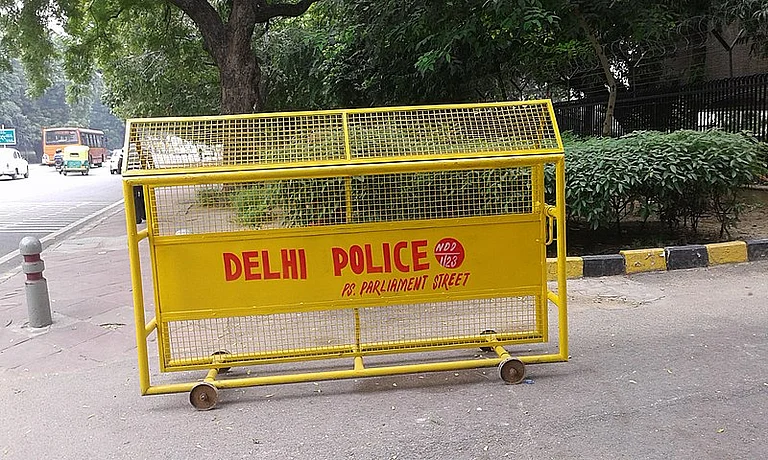IN the middle of October, the widow of a London school principal, stabbed to death by one of his students, asserted that Britain was morally bankrupt, and children needed to know more about moral and ethical issues. A reasonable proposition. Not, you would think, the basis for a collective religious frenzy. But that is precisely what is happening. Even as I write, Britain is undergoing a religious revival.
The revival began when the media converted this sensible postulate into a headline-making issue, by equating religion with moralitya Moral Crusade was needed, they argued, and children must be the object. Crusades were about religion, not morality.
Consequently, religion is now at the nub of the debate. Politicians vie with each other to emphasise the important and positive role that religion plays in human life, the role that it should play in public life, and their personal Deep Christian Beliefs and Convictions. Media-savvy priests of all Christian denominations infuse the airwaves and newspapers with a Very Reverential Tone.
Britain is not a secular country; its Queen is Defender of the Faith, the doctrine of the Church of England. Coming from a republican, secular country, I find all this religious fussing as boring and irrelevant as the Monarchy. But the argument about morals and ethics is real and has potentially important implications for India.
The first thing to remember is that this is a revival, not a new phenomenon. The Britain of the King Emperor of India took its religion seriously. Part of the civilising mission justification of colonialism had to do with the proposition that Christianity brought moral upliftment to the savages and natives of the colonies. Missionaries were the pioneers of colonialism. Britains own peculiar success in this game lay in using religion to serve State imperialism, rather than the other way round. For Britain, missionaries served Trade and Empire. In Africa their work was encouraged. In India, 1857 saw a quick end to State patronage of evangelist fervour. The lesson: Religion and the State can combine to protect an exclusive power relationship, which can be venal and exploitative as it seeks to use religion as an excuse for exclusion.
The 20th century witnessed a socialist challenge to religious guardianship of public morals. In Western Europe (unlike socialist Eastern Europe) this challenge came not through a disavowal of religion, but through a rejection of the establishmentarian role played by religious leaders. Religion was sought to be excluded from having a monopoly over the setting of the ethical agenda, while retaining its role in private life and in the community. This took different forms: in France, the Church was explicitly separated from the State. In Britain this did not happen, but the Labour movement emphasised the importance of secularism in the public domain, even while reaffirming the positive role of religion in private life. India adopted the French relationship between the State and Religion, and for 50 years we have had secularism, guaranteed by the Constitution, and upheld by deeply religious (and astrological) politicians and bureaucrats. Certainly there has been moral decline in Britain, no less than in India, but does the root cause have to do with the decline of the role of religion in the public sphere? I think not. Corrupt, decadent, depraved and venal holders of public office have not generally been atheists, either in Europe, or in India, or anywhere else. Revolutions based on religious fundamentalism have not brought about an enhancement of public virtue, in South America, Iran, Afghanistan. The Confucian ethic has not helped Korea and Japan much on this count.
Then what is it that brings moral decline? In Britain, a few sensible voices have pointed tellingly to the record of the government that has held office over the last 17 years. This government had three political propositions: that the notion of economic equity was faulty and must be abandoned in favour of the economics of the free market; that the best way to deal with crime and other social evils was to put more people in jail; and that social relations were irrelevantto quote Margaret Thatcher, "there is no such thing as Society". The result has been that vast numbers of moderate and fair-minded people feel that Britain is today a country of gross unfairness and inequalities. What a pity it took these fair-minded people 17 years to realise this fact. Morality is about fairness and about a concern for people other than oneself. Regimes which reject this notion, as Britain did, undergo inevitable moral drift, as people cease to have a stake in the community.
The Indian metropolitan elite has a depressing penchant for scavenging in the dustbins of western culture for its latest material and moral fashions, like McDonalds, synthetic clothing and Coke in cans. This scavenging has of late produced an affection for discarded free-market rhetoric, which is being rediscovered by the ex-colonials even as the excolonisers discard it. Stakeholders who challenge this path are excluded by the same elite, who are eloquently silent about State repression and intolerance as long as their own access to the benefits of exclusive elitism remains unaffected. Then, of course, there is a shrill moral outcry. We now have a new item in that dustbinthe rediscovery of morals through religionwhich may well add to our own cocktail of religious intolerance, to produce a heady and explosive political mixture. It would be convenient because it would overlook the real reasons forand location ofmoral decline. I hope it wont happen, for, thank goodness, the metropolitan elite are powerful but not absolute.
(The author is a political economist at SOAS, University of London.)


























